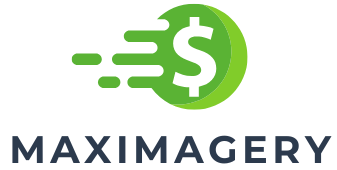Table of Contents
ToggleImagine being lost in a jungle of financial jargon, desperately searching for a map that makes sense of it all. Welcome to the world of personal finance. It’s not just about making money: it’s also about understanding the words that go along with it. In this text, we’ll explore personal finance word search answers while giving you a refreshing take on key financial terms. So grab your magnifying glass, and let’s dig into the treasure trove of financial knowledge.
Understanding Personal Finance Keywords

Personal finance is filled with terminology that might seem daunting at first. But, the right keywords can empower individuals to navigate their financial journey. Keywords like “budget,” “savings,” “debt,” and “investment” are the backbone of personal finance discussions. Understanding these terms not only enhances financial literacy but also equips individuals to make informed decisions. For instance, when someone talks about “compound interest,” they’re discussing how money can grow exponentially based on interest earned on both the principal amount and accumulated interest. Grasping such concepts is essential for effective financial management.
Common Terms in Personal Finance
When diving into personal finance, certain terms reign supreme. Here’s a brief list to get started:
- Budgeting: The art of planning and managing financial resources.
- Credit Score: A numerical representation of an individual’s creditworthiness.
- Interest Rate: The percentage at which interest is charged or earned.
- Emergency Fund: Savings set aside for unexpected expenses.
- Asset: Something of value owned by an individual or entity.
- Liability: A financial obligation: essentially, what you owe.
These words frequently appear in financial conversations and documents. Mastering this vocabulary serves as a solid foundation for further learning.
Creating Your Own Personal Finance Word Search
Ready to put your financial vocabulary to the test? Creating your own personal finance word search can be both fun and educational:
- Gather Keywords: Start with a list of finance-related words you want to include. Think back to the terms mentioned earlier.
- Choose a Grid Size: Decide on the dimensions for your word search – larger grids can make for a bigger challenge.
- Place Your Words: Fill in the grid with your chosen words, arranging them horizontally, vertically, or diagonally.
- Fill in the Blanks: Once your words are placed, fill the empty spaces with random letters.
- Create an Answer Key: This is crucial for participants to check their work later.
Creating this word search not only reinforces your knowledge but also allows you to share the learning experience with others.
Benefits of Learning Personal Finance Terms
Understanding personal finance terminology offers numerous benefits. For one, it increases confidence in financial discussions. When individuals can articulate their financial situations using the correct terms, they’re more likely to engage in meaningful conversations.
Tips for Solving Word Searches Efficiently
Solving a word search should be an enjoyable activity, not a chore. Here are some tips to speed up the process:
- Scan Quickly: Look for the first letters of the words and scan through the grid. Your brain can quickly catch familiar shapes or patterns.
- Focus on One Direction: Concentrate on finding words in one direction at a time, either horizontally or vertically, to avoid confusion.
- Use a Highlighter: If you’re doing this on paper, a highlighter can help mark found words without erasing magazine columns.
- Take Breaks: If you find yourself stuck, take a short break. Coming back with fresh eyes often helps.
These strategies can make the search more efficient and even more enjoyable.





